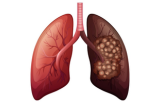BPS Bioscience
 |
||
BPS biedt een van de grootste selecties unieke recombinante eiwitten en testkits voor epigenetisch onderzoek, immuuncontrolepunten, metabolisme en celsignaalroutes om de menselijke gezondheid te verbeteren.
Klonen en expressie: BPS Bioscience's Molecular Biology Services team kan u helpen bij het bereiken van elk moleculair biologisch onderzoeksdoel dat u probeert te bereiken. Onze diensten voor het klonen van genen en gerichte mutagenese zijn vaak de eerste stap in projecten voor eiwitexpressie op maat, analytische ontwikkeling en de ontwikkeling van aangepaste cellijnen.
Zuivering en eiwitmodificatie: Kies BPS Bioscience voor uw behoeften op het gebied van eiwitten, reductie, zuivering en modificatie. Met behulp van onze diensten voor klonen en expressie kunnen de constructen worden geoptimaliseerd voor zeer zuivere eiwitexpressie met hoge prestaties. We zijn ook gespecialiseerd in het labelen van eiwitten om verbeterde producten te leveren voor testen van hoge kwaliteit.
Ontwikkeling van cellijnen: Laat onze experts u helpen tijd en complexiteit te verminderen met onze diensten voor de ontwikkeling van stabiele cellijnen. We produceren aangepaste cellijnen voor eiwitproductie en het screenen van samenstellingen. Onze specialiteit in reporter-assays voor immuuncontrolepaden biedt geweldige mogelijkheden voor onderzoek naar co-immunotherapieën.
Testontwikkeling en screeningdiensten: Evalueer belangrijke verbindingen met onze biochemische en celscreeningdiensten. Bespaar tijd door ons toe te staan uw interessante verbindingen te filteren op onze unieke testpanels of IC50-waarden te bepalen met ons portfolio van honderden tests, zodat u zich kunt richten op de voortgang van uw ontdekkingsprogramma van geneesmiddelen.
Website: bpsbioscience.com
| ||

Lung cancer
Lung cancer is a disease that develops in the cells of the lung. There are two main forms of lung cancer: non-small cell lung cancer (NSCLC), which accounts for almost 85% of cases, and small cell lung cancer (SCLC), which accounts for almost 15% of cases.
Lung cancer, a formidable disease, is one of the major challenges facing world health. Characterised by the abnormal growth of lung cells, this cancer encompasses a diversity of subtypes, contributing to its complexity and varied clinical implications. As cancer cells proliferate uncontrollably, they can invade neighbouring tissues and spread to other parts of the body via the lymphatic or blood systems. Lung cancer, as a pathological entity, represents a major medical challenge at the crossroads of cell biology, epidemiology and clinical medicine.
The different forms of lung cancer, such as small-cell bronchial carcinoma and non-small-cell bronchial carcinoma, bear witness to the genetic diversity underlying this disease. Genomic alterations, such as KRAS gene mutations or ALK gene rearrangements, are contributing to a growing understanding of the specific oncogenic mechanisms involved in disease initiation and progression.
The origin of lung cancer is often associated with genetic mutations triggered by environmental factors such as smoking, exposure to carcinogens or other complex variables. Scientific advances have led to a better understanding of the underlying biology of this disease, shedding light on the specific molecular mechanisms that contribute to its development.
Select the cells below to find the most commonly used cell lines complete for each specified cell type.
Resultaat van uw zoeken : 4 product gevonden
Verfijn uw zoekopdracht :
- Cell line 4
- human 2
- Assay 1

